Subtitle "Afrikaans" was produced by machine.Subtitle "አማርኛ" was produced by machine.Subtitle "العربية " was produced by machine.Subtitle "Ārāmāyâ" was produced by machine.Subtitle "azərbaycan dili " was produced by machine.Subtitle "беларуская мова " was produced by machine.Подзаглавието "България" е създадено от машина.সাবটাইটেল "বাংলা " মেশিন দ্বারা তৈরি করা হয়েছিল।Subtitle "བོད་ཡིག" was produced by machine.Subtitle "босански" was produced by machine.Subtitle "català" was produced by machine.Subtitle "Cebuano" was produced by machine.Subtitle "ગુજરાતી" was produced by machine.Subtitle "corsu" was produced by machine.Podtitul "Čeština" byl vytvořen automaticky.Subtitle "Cymraeg" was produced by machine.Subtitle "Dansk" was produced by machine.Untertitel "Deutsch" wurde maschinell erzeugt.Subtitle "Untertitel" was produced by machine.Ο υπότιτλος "Ελληνικά" δημιουργήθηκε αυτόματα.Subtitle "English" was produced by machine.Subtitle "Esperanto" was produced by machine.El subtítulo "Español" se generó automáticamente.Subtitle "Eesti" was produced by machine.Subtitle "euskara" was produced by machine.Subtitle "فارسی" was produced by machine.Subtitle "Suomi" was produced by machine.Le sous-titrage "Français" a été généré automatiquement.Subtitle "Frysk" was produced by machine.Subtitle "Gaeilge" was produced by machine.Subtitle "Gàidhlig" was produced by machine.Subtitle "Galego" was produced by machine.Subtitle "Schwizerdütsch" was produced by machine.Subtitle "هَوُسَ" was produced by machine.Subtitle "Ōlelo Hawaiʻi" was produced by machine.Subtitle "עברית" was produced by machine.Subtitle "हिन्दी" was produced by machine.Subtitle "Mẹo" was produced by machine.Subtitle "Hrvatski" was produced by machine.Subtitle "Kreyòl ayisyen " was produced by machine.Subtitle "Magyar" was produced by machine.Subtitle "Հայերեն" was produced by machine.Subtitle "Bahasa Indonesia " was produced by machine.Subtitle "Asụsụ Igbo " was produced by machine.Textun"Íslenska" var framkvæmt vélrænt.Sottotitoli "Italiano" sono stati generati automaticamente.字幕は"日本語" 自動的に生成されました。Subtitle "Basa Jawa" was produced by machine.Subtitle "ქართული" was produced by machine.Subtitle "қазақ тілі " was produced by machine.Subtitle "ភាសាខ្មែរ" was produced by machine.Subtitle "ಕನ್ನಡ" was produced by machine.Subtitle "한국어" was produced by machine.Subtitle "कोंकणी語" was produced by machine.Subtitle "کوردی" was produced by machine.Subtitle "Кыргызча" was produced by machine.Subtitle " lingua latina" was produced by machine.Subtitle "Lëtzebuergesch" was produced by machine.Subtitle "Lingala" was produced by machine.Subtitle "ພາສາ" was produced by machine.Subtitle "Lietuvių" was produced by machine.Subtitle "Latviešu" was produced by machine.Subtitle "fiteny malagasy" was produced by machine.Subtitle "te reo Māori" was produced by machine.Subtitle "македонски јазик" was produced by machine.Subtitle "malayāḷaṁ" was produced by machine.Subtitle "Монгол хэл" was produced by machine.Subtitle "मराठी" was produced by machine.Subtitle "Bahasa Malaysia" was produced by machine.Subtitle "Malti" was produced by machine.Subtitle "မြန်မာစာ " was produced by machine.Subtitle "नेपाली" was produced by machine.Ondertitels "Nederlands" machinaal geproduceerd.Subtitle "Norsk" was produced by machine.Subtitle "chiCheŵa" was produced by machine.Subtitle "ਪੰਜਾਬੀ" was produced by machine.Podtytuł "Polska" został utworzony przez maszynę.Subtitle "پښتو" was produced by machine.Legenda "Português" foi gerada automaticamente.Subtitle "Română" was produced by machine.Subtitle "Язык жестов (Русский)" was produced by machine.Субтитры "Pусский" были созданы машиной.Subtitle "Kinyarwanda" was produced by machine.Subtitle "सिन्धी" was produced by machine.Subtitle "Deutschschweizer Gebärdensprache" was produced by machine.Subtitle "සිංහල" was produced by machine.Subtitle "Slovensky" was produced by machine.Subtitle "Slovenski" was produced by machine.Subtitle "gagana fa'a Samoa" was produced by machine.Subtitle "chiShona" was produced by machine.Subtitle "Soomaaliga" was produced by machine.Titra "Shqip" u krijua automatikisht.Subtitle "србски" was produced by machine.Subtitle "Sesotho" was produced by machine.Subtitle "Basa Sunda" was produced by machine.Undertext "Svenska" är maskinell skapad.Subtitle "Kiswahili" was produced by machine.Subtitle "தமிழ்" was produced by machine.Subtitle "తెలుగు" was produced by machine.Subtitle "Тоҷикй" was produced by machine.Subtitle "ภาษาไทย" was produced by machine.ንኡስ ኣርእስቲ "ትግርኛ" ብማሽን እዩ ተፈሪዩ።Subtitle "Türkmençe" was produced by machine.Subtitle "Tagalog" ay nabuo sa pamamagitan ng makina.Altyazı "Türkçe" otomatik olarak oluşturuldu.Subtitle "татар теле" was produced by machine.Subtitle "Українська " was produced by machine.ذیلی عنوان "اردو" مشین کے ذریعہ تیار کیا گیا تھا۔Subtitle "Oʻzbek" was produced by machine.Phụ đề được tạo bởi máy.Subtitle "Serbšćina" was produced by machine.Subtitle "isiXhosa" was produced by machine.Subtitle "ייִדיש" was produced by machine.Subtitle "Yorùbá" was produced by machine.Subtitle "中文" was produced by machine.Subtitle "isiZulu" was produced by machine.
kla.TV accepts no liability for defective translation.kla.TV accepts no liability for defective translation.kla.TV accepts no liability for defective translation.kla.TV accepts no liability for defective translation.kla.TV accepts no liability for defective translation.kla.TV accepts no liability for defective translation.kla.TV не носи отговорност за некачествен превод.অপর্যাপ্ত অনুবাদের জন্য kla.TV কোন দায় বহন করে না।kla.TV accepts no liability for defective translation.kla.TV accepts no liability for defective translation.kla.TV accepts no liability for defective translation.kla.TV accepts no liability for defective translation.kla.TV accepts no liability for defective translation.kla.TV accepts no liability for defective translation.kla.TV nenese žádnou odpovědnost za chybné překlady.kla.TV accepts no liability for defective translation.kla.TV accepts no liability for defective translation.kla.TV übernimmt keine Haftung für mangelhafte Übersetzung.kla.TV accepts no liability for inadequate translationΗ kla.TV δεν φέρει καμία ευθύνη για ανεπαρκή μετάφραση.kla.TV accepts no liability for defective translation.kla.TV accepts no liability for defective translation.kla.TV no se hace responsable de traducciones incorrectas.kla.TV accepts no liability for defective translation.kla.TV accepts no liability for defective translation.kla.TV accepts no liability for defective translation.kla.TV accepts no liability for defective translation.kla.TV n'assume aucune responsabilité en cas de mauvaise traduction.kla.TV accepts no liability for defective translation.kla.TV accepts no liability for defective translation.kla.TV accepts no liability for defective translation.kla.TV accepts no liability for defective translation.kla.TV accepts no liability for defective translation.kla.TV accepts no liability for defective translation.kla.TV accepts no liability for defective translation.kla.TV accepts no liability for defective translation.kla.TV accepts no liability for defective translation.kla.TV accepts no liability for defective translation.kla.TV accepts no liability for defective translation.kla.TV accepts no liability for defective translation.kla.TV nem vállal felelősséget a hibás fordításértkla.TV accepts no liability for defective translation.kla.TV accepts no liability for defective translation.kla.TV accepts no liability for defective translation.kla.TV tekur enga ábyrgð á áræðanleika þýðingarinnarKla.TV non si assume alcuna responsabilità per traduzioni lacunose e/o errate.Kla.TV は、不適切な翻訳に対して一切の責任を負いません。kla.TV accepts no liability for defective translation.kla.TV accepts no liability for defective translation.kla.TV accepts no liability for defective translation.kla.TV accepts no liability for defective translation.kla.TV accepts no liability for defective translation.kla.TV accepts no liability for defective translation.kla.TV accepts no liability for defective translation.kla.TV accepts no liability for defective translation.kla.TV accepts no liability for defective translation.kla.TV accepts no liability for defective translation.kla.TV accepts no liability for defective translation.kla.TV accepts no liability for defective translation.kla.TV accepts no liability for defective translation.kla.TV accepts no liability for defective translation.kla.TV accepts no liability for defective translation.kla.TV accepts no liability for defective translation.kla.TV accepts no liability for defective translation.kla.TV accepts no liability for defective translation.kla.TV accepts no liability for defective translation.kla.TV accepts no liability for defective translation.kla.TV accepts no liability for defective translation.kla.TV accepts no liability for defective translation.kla.TV accepts no liability for defective translation.kla.TV accepts no liability for defective translation.kla.TV accepts no liability for defective translation.kla.TV aanvaardt geen aansprakelijkheid voor foutieve vertalingen.kla.TV accepts no liability for defective translation.kla.TV accepts no liability for defective translation.kla.TV accepts no liability for defective translation.kla.TV nie ponosi odpowiedzialności za wadliwe tłumaczenie.kla.TV accepts no liability for defective translation.kla.TV não se responsabiliza por traduções defeituosas.kla.TV accepts no liability for defective translation.kla.TV accepts no liability for defective translation.kla.TV не несет ответственности за некачественный перевод.kla.TV accepts no liability for defective translation.kla.TV accepts no liability for defective translation.kla.TV accepts no liability for defective translation.kla.TV accepts no liability for defective translation.kla.TV accepts no liability for defective translation.kla.TV accepts no liability for defective translation.kla.TV accepts no liability for defective translation.kla.TV accepts no liability for defective translation.kla.TV accepts no liability for defective translation.kla.TV nuk mban asnjë përgjegjësi për përkthime joadekuate.kla.TV accepts no liability for defective translation.kla.TV accepts no liability for defective translation.kla.TV accepts no liability for defective translation.Kla.TV tar inget ansvar för felaktiga översättningar.kla.TV accepts no liability for defective translation.kla.TV accepts no liability for defective translation.kla.TV accepts no liability for defective translation.kla.TV accepts no liability for defective translation.kla.TV accepts no liability for defective translation.kla.TV ንዝኾነ ጉድለት ትርጉም ዝኾነ ይኹን ሓላፍነት ኣይቅበልን እዩ።kla.TV accepts no liability for defective translation.kla. Walang pananagutan ang TV sa mga depektibong pagsasalin.kla.TV hatalı çeviriler için hiçbir sorumluluk kabul etmez.kla.TV accepts no liability for defective translation.kla.TV accepts no liability for defective translation.kla.TV عیب دار ترجمہ کے لیے کوئی ذمہ داری قبول نہیں کرتا ہے۔kla.TV accepts no liability for defective translation.Kla. TV không chịu trách nhiệm về bản dịch không đầy đủ.kla.TV accepts no liability for defective translation.kla.TV accepts no liability for defective translation.kla.TV accepts no liability for defective translation.kla.TV accepts no liability for defective translation.kla.TV accepts no liability for defective translation.kla.TV accepts no liability for defective translation.
This is a modal window.
The media could not be loaded, either because the server or network failed or because the format is not supported.
The third wave - The financial tsunami is here (with Ernst Wolff)
18.04.2020
www.kla.tv/16165
The 3rd wave of the financial tsunami is here - according to the financial expert Ernst Wolff, who has been predicting the approaching financial catastrophe for many years. In an interview with "eingeSCHENKt.tv" he explains the means by which this financial crash is being hidden, covered up and "washed clean".
[continue reading]
The third wave - The financial tsunami is here (with Ernst Wolff)
Download broadcast and attachments in the wanted quality: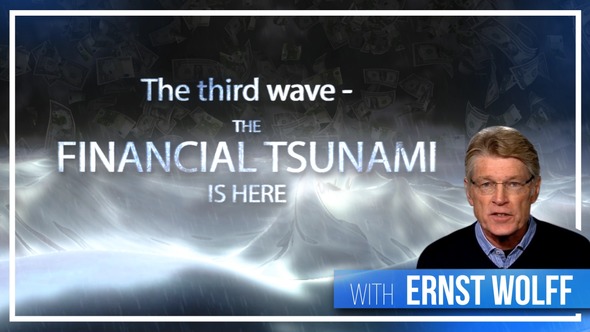
Hashtags: #ErnstWolff-en
Useage rights:
Standard-Kla.TV-Licence
Topics A-Z
Enter a word for search or use the alphabetic search-order

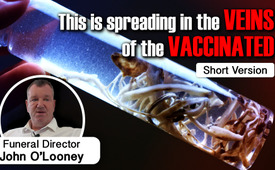
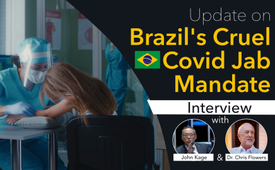
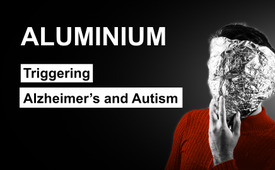
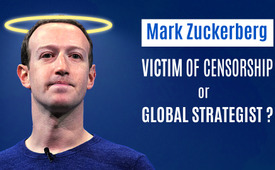


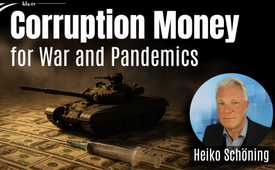

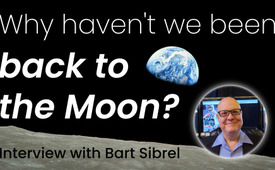






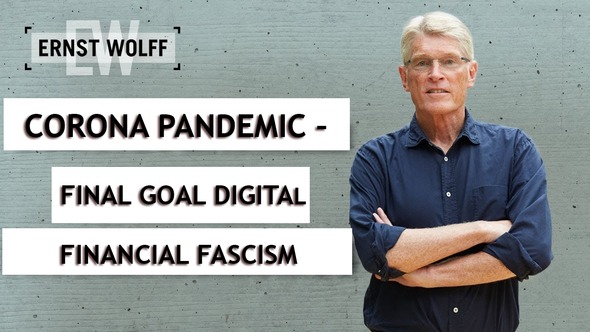


Sendungstext
herunterladen
18.04.2020 | www.kla.tv/16165
Now it is here, the 3rd wave of the financial tsunami - at least this is how financial expert Ernst Wolff sees it, who has been predicting and writing about the approaching financial catastrophe for many years. In an interview with "eingeSCHENKt.tv" Ernst Wolff explains the means by which this unprecedented financial crash is hidden, covered up and, quasi "washed clean". Ernst Wolff: Well, the system is collapsing at the moment (Interviewer: Yes) and in my opinion, there is no rescue for this system. Then one should ask oneself, who is behind this World Health Organization: What we experience is basically nothing else than a financial fascist coup. And it was orchestrated internationally. And I believe that all this hysteria about the Corona virus is also for this expropriation. Because now you have to control people somehow. You have to control the people, it's best if the people are in their homes. And it would be best if now a part of the internet is also switched off and if the police are checking the streets. I also think it's quite possible that the next thing we'll see is a curfew. This is a historic opportunity to make people understand what is actually going on behind the scenes. I believe, for example, that the curfew, which we are facing, is a means of getting some fresh air, for a few days and then taking some decisions. Alex Quint: Dear viewers of eingeSCHENKT.tv, quite spontaneously we drove to Berlin today, over an amazingly empty highway and sit here together on March 20th 2020 at 12 o'clock, that's the time where we record this video now. The events seem to turn over and already tomorrow or maybe next week the world could look completely different. I welcome Ernst Wolff. Dear Ernst, you wrote the book The Financial Tsunami is coming. Where do we stand: Is this the beginning? Are we in the middle? Ernst Wolff: Well, we are right in the middle of it and what we are experiencing at the moment is the last big wave in this tsunami. Well, we have already experienced two bigger waves. The first was in 1998, when the financial system was already on the verge of collapse. The next time was 2007/2008, when it was rescued by the world central banks, with huge injections of money into the system, and more and more interest rate cuts, and now we probably have the final wave, because with these crashes that we have experienced in the stock markets, with what we have experienced in the bond markets, the derivatives bomb must have burst in the background. So that system is done. We are currently experiencing the complete and total collapse of the financial system, which has existed for 70 years. Alex Quint: We both know that in theory such an uncovered fiat money system with compound interest etc. has a limited life span. Ernst Wolff: Right. Alex Quint: Now in the past, central banks have always tried to keep all kinds of doomed men alive a little bit by cutting interest rates, and ever more abundance of money. So... Will that work again? Ernst Wolff: I suspect that this time it will not succeed. In fact, we had the big turnaround last December. Ever larger sums were fed into the system, interest rates were lowered more and more and then attempts were made to normalize the system again. So to get back to a normal mode. That went wrong last December. Since last December, we have seen that interest rates have had to be cut again, and they have had to be cut quite drastically. We have now had two interest rate cuts in the USA, and they have been quite drastic: once 0.5% and then again, I think it was 1.5 or 1.25 last time. Alex Quint: In any case now in one go to zero. (Ernst Wolff: Exactly.) And that was on Sunday night. (Ernst Wolff: Right.) While on Wednesday there would have been a regularity meeting and that was of course a signal to the markets: the hut is burning, we can't wait until Wednesday. Ernst Wolff: Right. And it also shows that the central banks no longer have the option of saving this system any further. Well, they only have these two possibilities: They can feed more and more money into the system and they can lower interest rates further and further into the negative range. But these last interest rate cuts no longer worked. All the investors still sold their shares. The people, the investors, went into the bonds en masse and insane amounts of gold and silver were bought. So the system is collapsing at the moment (Alex Quint: Yes) and in my opinion there is no rescue for this system. And because of that reason you have to look for someone to blame for this collapse and I think this someone has been found: in the form of a virus. Alex Quint: But he has no address, right? Ernst Wolff: Right. So I'm not a doctor now, I don't know anything about medicine. But I'm good at reading and writing and I know that there is something wrong with what we are told. So as far as the virus is concerned, I also let myself be bullied a bit in the beginning. So when the first reports came in from China, when then these horror reports came in from Italy. But you have to sit down there and check exactly where these reports come from. And all the reports, that is, about all these cases of illness and so on, they come from the World Health Organization. Then you should ask yourself who is behind this World Health Organisation. Ernst Wolff: And the World Health Organization was founded in 1948, by several states. And in the first decades it was mainly financed by these states. But that has changed, that is in the course of deregulation. That has been a very important phenomenon in the financial system. Deregulation has been accompanied by a huge wave of privatisation. And the World Health Organisation has also been affected by this wave of privatisation. Since the 1970s, state funding has been steadily reduced and more and more private contributions have been received. These are foundations, and the pharmaceutical industry has gone in. And today more than 85 % of the World Health Organization is financed by foundations and the pharmaceutical industry. Alex Quint: Is the WHO a lobbying body of the pharmaceutical industry? Ernst Wolff: I would say. Well, I mean, if you look at the financing in the background, you have to say that the strongest influence is not exerted by individual states, but by foundations and the pharmaceutical industry. And foundations are nothing more than organisations that rich people use to hide their money from the tax authorities. Alex Quint: Hmmm, ok. Ernst Wolff: Well, that's not very trustworthy. And the biggest foundation at the moment is, which is quite interesting, the biggest foundation at WHO is the Bill & Melinda Gates Foundation. And they hold huge shares... So they're pretending to be a humanitarian organization, but you just have to look at the block of shares they own. Well, they have huge holdings in Coca Cola and Pepsi Cola, companies that don't exactly serve public health. It's very interesting. But they have a very big influence on this organization and of course the big pharmaceutical companies do too. And then you have to look at what has happened in the past with other pandemics. I have now taken a look at what happened in 2005 when the so-called bird flu was rampant. And there were very similar reactions from the World Health Organization as there are today. For example, there was an influenza director of the WHO who said in 2005: "We expect seven million deaths". So, at that time there was also an incredible hysteria, because of this hysteria governments bought huge contingents of drugs from the pharmaceutical industry. Well, the bottom line at the end of the day was that there were just over 150 deaths worldwide due to bird flu, not a single death in Germany. Alex Quint: But the deal was made. Ernst Wolff: The deal was made. And it's quite interesting to note that this influenza director moved to one of the largest pharmaceutical companies in the world, namely Novartis, in 2007. Alex Quint: I see. Ernst Wolff: Well, you can already see all these interests in the background that are working there, and I think it's important to recognize that, because then you can somehow classify the whole situation today, even if you're a medical layperson. And then you don't need to be so addicted to all this hysteria at the moment. Alex Quint: Okay, so now that's a clear hint. There are people who make money from this kind of scare stories, but at the same time we have this derivatives bubble that is bursting, stock prices are falling, all kinds of things are falling, the first companies are closing. At first the states seem to respond with the usual medicine, which has not helped in the past: Even more money, even more money, even lower interest rates, short-time pay, unlimited aid, etc. And now, as a result of this corona hysteria, this meets a situation where the states worldwide are, so to speak, shutting down their economies in a concerted action. That is aggravating. Ernst Wolff: Yes. Alex Quint: I always tell my customers: The money supply will then be inflated again, while the supply of goods and services will become smaller due to this blackout, which is now being quasi ordered. And isn't that actually the perfect recipe for hyperinflation? Ernst Wolff: Yes yes, definitely. In the long term, that would be the beginning of hyperinflation. Well, we have seen that in, I think, Hong Kong was the first state to use helicopter money. So helicopter money, i.e. a certain amount of money is simply transferred to every citizen by the central bank or by the government. The US also announced it last week.Other governments have now also expressed their intention to consider this. For me, the helicopter money is the last desperate attempt to save a system that can no longer be saved. Because helicopter money cannot be paid just once, helicopter money must be paid at regular intervals. Especially when you are now totally choking the economy, you have to give this money to people in order to survive. And this money must be put into consumption immediately. And that will of course mean that the prices will go up. And that will result in hyperinflation. But I don't think that will last that ong. Alex Quint: But sarcastically speaking, I could say that the helicopter is a good idea because the price of oil has just dropped, right? Ernst Wolff: Yes, this is the second important arena, because at the moment we not only have the complete collapse of the entire world financial system, but we are on the threshold of a new order, the global strategic order. In fact, there was an event in March, which was not really discussed so much in public. It was the OPEC conference in Vienna. That was where the OPEC countries, that is, the Organisation of Petroleum Exporting Countries, met. And there is another organisation, OPEC Plus. It includes Russia and some countries. Together they are the biggest oil producers in the world. And Saudi Arabia, so far one of the two most important allies of the USA in the Middle East, has openly opposed the USA here. And the whole thing has been kind of masked. Saudi Arabia and Russia have allegedly not been able to reach an agreement. Because the point was to actually reduce production. Alex Quint: Keeping the price up. Ernst Wolff: Yes, because at the moment there is simply too little production, too little oil is being demanded, and that's why they wanted to limit the production volumes in order to keep the price reasonably high. They didn't agree on that and in the end there was a big rumpus, supposedly between Saudi Arabia and Russia. But if you take a closer look, the big loser in this matter is the USA. Alex Quint: The fracking... Ernst Wolff: The USA have tried to become energy independent through fracking, and have even managed to do so in recent years. Well, they are self-sufficient, for years they were one of the biggest importers of oil. But this fracking industry, into which, by the way, hundreds of billions of US dollars, including speculative money, have flowed in huge amounts. This fracking industry needs a relatively high price for oil. It's around 60 to 70 dollars. So, there are several. Alex Quint: Yeah, definitely with 20 or 26 dollars where we are now, write the huge losses? Ernst Wolff: Exactly, they collapse, these companies, many investors lose their money. And we have to consider that we currently have the largest credit bubble in the world. So all the loans that are due cannot be serviced at the moment. That means that the amount of bad loans is growing exponentially at the moment, and of course that means that the financial system is being squeezed from several sides at the moment. And that this financial system cannot survive in the long run. The other thing is the derivatives bubble. One has to consider that the fall of the oil price alone to this price below 30 dollars would have caused the derivatives bubble to burst, because all transactions and oil is the most traded commodity in the world, and all transactions in the oil sector are hedged by derivatives. Derivatives are not just bets, they are also bets that are used to hedge transactions. And these hedges only work if prices are kept reasonably stable. So this is one of the phenomena that we have seen in the last few years is that the central banks have always prevented the stock markets from crashing, the bond markets from somehow getting out of control. The main reason for keeping this system constantly in the balance was this huge amount of derivatives in the background. And the crazy thing about this is that nobody knows how many derivatives exist in the world. So the Bank for International Settlements in Basel, they always give out estimates for this and according to their estimates, it is an amount of 700 trillion, which is breathtaking in itself. Alex Quint: Nobody knows how much is traded, a lot is traded OTC. Ernst Wolff: Exactly, there are these OTC, over-the-counter transactions that do not have to appear in the books of the companies. That means there is a very large black area that you can't see. And insiders estimate it to be 1.25 quadrillion at the moment. And even if that is not true, even if only the figures in the BIS in Basel are correct, even then, this derivatives bubble has definitely burst in the last few days. In other words, the world financial system is at the end of the line at the moment. This can be compared to a hare killed with buckshot - a hare will then run about 30-40 metres further and only then will it stop. It's actually already dead, but it doesn't stop until the end. Alex Quint: So when I hear these dimensions, the 750 billion Euros that the ECB now wants to pump into the financial system again by buying all kinds of assets, obviously including high-heeled bonds, possibly also shares. That is really just a little watering can for a huge inferno. Ernst Wolff: That is too little, too late. If you look at it from a higher point of view, but it is of course a service for major investors. After all, the money doesn't go to the population, it goes to major investors. The US government is currently in the process of providing the Boeing company with huge amounts of money. This is a company that has made billions and billions in profits over the last decades. And now, just before the house collapses, they're getting support money. So what we have at the moment is a burning house, from which the last assets are quickly taken out with the intention of looting | and distributed to the major investors. Alex Quint: Well, but even without this derivatives bubble, which is of course much bigger in dimension, this shutting down of the economy would drive even simple small and medium-sized companies, which cannot afford to be without sales for four or eight weeks, into insolvency. Ernst Wolff: Yes. Alex Quint: So we have defaulting loans, we have problems in the banking sector, which was already having problems, so that means that this is now... Ernst Wolff: ...a conscious inducement of a crash, i.e. this crash is induced quite deliberately. Alex Quint: In principle, this financial system is not only shot, but also poisoned and stabbed at the same time. Ernst Wolff: Right, and there will be looting at the end. And there are some more interesting phenomena of the last week, e.g. last Tuesday the company VW announced that they will shut down a lot of car factories next week because of the corona virus. This is a completely insane thing, because normally VW would have announced something like this on Friday evening after the stock exchanges are closed. Because they know that an announcement like that would cause a huge drop in stock prices. But now something else comes into play. You can also earn a lot of money from falling prices by short selling. So if you knew beforehand, any insiders who knew beforehand that VW would make this announcement on Tuesday morning, you could make short sales beforehand, i.e. bet on falling prices, and you made a lot of money last week. Alex Quint: It works as long as the issuers can still deliver, and that is again at the expense of the issuing banks. Ernst Wolff: Yes, as I said, we are experiencing, we are in the final phase of this monetary system and we are experiencing the absolute orgy of looting by the major investors at the moment. Alex Quint: Okay. Ernst Wolff: For the little one this is of course horrendous, another thing I'd like to mention is that Amazon, for example, hired 100,000 new people in the USA last week. So Amazon is one of the really big winners. One of the biggest companies in the world and first of all you have to consider that Amazon is a company that hasn't paid taxes worldwide for at least two years now, but on the contrary has even taken taxes from the USA. Such a company profits from this crisis at the moment in an enormous way, while all the small companies go bankrupt in rows. But we also have to ask ourselves what will happen now. Because the situation we are in now cannot continue in the long term. Alex Quint: And that was my follow-up question. What do you think now, I mean now we're in the area of predicting expectations. Yes, that's why this video is so urgent and so dangerous. And dear viewers, there is a button down here, not only subscribe, but share, and share this, share that - now! So now, let's get on with it. What does the future hold? Ernst Wolff: Yes, that is very, very difficult to predict. And I don't have a silver glass ball either. But you can do certain things, you can definitely predict. So, this system is no longer salvageable, so it has to be operated somehow. There are several ways. There's the possibility of monetary reform. In Germany, for example, the borders have now been closed, and there is also the possibility that the Deutschmark could be reintroduced. There is also the possibility that Germany might cancel all its debts to the EU. Because Germany has guaranteed a great deal within the EU for other countries, and that naturally burdens the German budget. So there is the possibility that one day people will say: we will not pay back all these debts to the EU. Another possibility is the reintroduction of the Deutschmark. However, that will not be enough. What I suspect is that an IMF plan will soon be implemented. After all, the IMF has already proposed in 2013: to expropriate all citizens, at a certain percentage. This means that 25% or 50% of the citizens' accounts will be shaved off. Alex Quint: Yes, well, a currency reform is always associated with expropriation, so to speak. Ernst Wolff: Normally a currency reform is such that one expropriates the currency via the new rate. Alex Quint: Yes! Ernst Wolff: But I don't think that alone will be enough in this case. Alex Quint: So you mean an Equalization of Burdens Act 2.0. Like this. Ernst Wolff: Exactly, exactly! Alex Quint: And which asset classes do you think are in danger now? Ernst Wolf: I think that all asset classes are in danger at the moment, because we have seen that in the past, you just have to look at what was done in Greece and Cyprus. In Cyprus, when the great expropriation took place in Cyprus, the IMF first proposed to take 25% from all people, but then the politicians came and said: "You know what, we can't sell that to the people, it will cause a huge uprising here". And then they agreed, I think it was 20,000 or 50,000 in the end, were allowances, so they weren't taxed, or nothing was taken from them, but only from 50 or 100,000 was something taken from the people. But I don't think that will be the case this time. And I believe that the whole hysteria that is being made about this Corona virus also serves this expropriation, because you have to have people under control somehow, you have to control the people, the best thing is that when people are in their homes, and it would be best if now a part of the internet is also switched off, if the police are checking the streets, that, I also think it's quite possible that we'll have a curfew next and that it'll be announced: „You know what, you're all the poorer and so much poorer and we're introducing a new currency.“ In this way, they are preparing for protests to be suppressed, because people do not simply accept that. People stand up against something like this. Alex Quint: Yes, well, a currency reform, it has to be, if it's not to be completely uncontrolled and I don't want to be on the streets, we have civil war, it has to be prepared and if you separate the whole picture from this corona story, there are curfews, at least many shops are closed and, and, and, and, people are brought back to their homes, because the tourists all have to come back, nobody is allowed to enter and leave. Um, so somehow I feel like I'm in the wrong movie. But if I put these dots together, it really looks like The question now is when? Ernst Wolff: Yes, that is a crucial question. So what we are experiencing is basically nothing other than a financial fascist coup, obviously orchestrated internationally. Alex Quint: That is interesting, all countries are participating. Ernst Wolff: Yes. Alex Quint: Yesterday I heard that the Swiss National Bank, for example, is working on a new cryptic Swiss franc. It's hard to make predictions, especially when it comes to the future, but assuming there's a new money coming, what would you think the design would be? Ernst Wolff: I can't say that at the moment, there may be a gold-backed currency, because gold will perhaps play a major role, but it may also be the reintroduction of a gold standard, but there is no agreement. I mean, at the moment, the fact is that the central banks are the most powerful players in this whole thing, that is, the central banks plus the hedge funds in the background. These are the most important, and I am quite sure that in the headquarters of the BIS, the Bank for International Settlements in Basel, one emergency meeting after another is currently being held on the boardroom floor, because we have already seen in recent years that the central banks as a whole are coordinating their policies with one another. So just where the Swiss Central Bank was mentioned, the Swiss Central Bank is a major holder of shares in Apple, Netflix, Google and so on. So they have already helped each other to keep share prices high, to keep the markets reasonably stable. But this scenario has now completely collapsed and now it will also be decided which central banks are the strongest and which are the weakest. And I cannot now foresee how the whole thing will develop. I can only imagine that those who are spinning the strings in the background are really in great need of help to get this situation under control. I believe, for example, that the curfew we are facing, that it is a means of getting some fresh air, a few days, and then to make some decisions. Alex Quint: I mean, there are enough helpers who actually want to make Defender 2020 in this area, who knows, but, does it even matter whether a central bank is strong or weak? Aren't we so globalized and interconnected that in principle this whole big domino game is pushed in one place, everyone has to fall behind? Ernst Wolff: Yes of course - we have this domino effect, we are experiencing it right now, so that's why everything collapses. Alex Quint: I bring it up because the Norwegian Crown, with its oil reserves, with its state fund, Norway is such a solid economy, yet the Crown has also fallen, dramatically in recent days. Ernst Wolff: Yes, because everyone is so closely connected. It can't be just any bank, so Deutsche Bank is so closely interwoven with J.P. Morgan and with Citibank and so on. Nobody can decide anything or do anything without something happening somewhere else. And that's also very important for me, at the moment the borders are being sealed off everywhere, i.e. people are being, are being - and this nationalism is also being promoted by it. But you always have to remember that there is an international force in the world, and that is the financial industry - they don't care about borders, they don't care about borders at all. But they have always exploited borders to their advantage. So if one country has somehow seemed stupid to them, they have moved to another country, and so they have always put the whole world under pressure. And the fact that the borders are now being closed everywhere is for me also a sign that the financial elite is currently counting on people being separated from each other nationally. And that is also a very important aspect. Alex Quint: Yes, that's also a complete turnaround - but now, thank you - thank you very much first. Now our intention is not necessarily to spread fear, but to say: friends, the hut is burning and what to do now? What exactly is to be done now? Did you get your money from the bank yet? Ernst Wolff: Yes, yes, I don't trust the banks anyway, not professionally. Alex Quint: All right. Ernst Wolff: So what is important for the individual person at the moment is simply, the most important thing of course, to understand all these connections. Because it is much easier to bear a situation when you know what forces are at work. And quite a lot of people are totally insecure at the moment because of this medical hysteria. And so I have to tell people, look at who the WHO is, look at where the data comes from, look at the videos of certain doctors who are trying to put the whole thing right. And remember, this hysteria is for someone's benefit, and being artificially inflamed. Other than that, all I can tell people is that it's always been important in life anyway to have certain supplies at home,so you don't have to depend on it, depend on other people in emergency situations, because I suspect that curfew will come. So I think that everyone should take care of themselves again - but in any case not with hamster purchases and harm other people, but you should get some reasonable supplies, maybe for 1-2 weeks and that is still possible at the moment. That will probably be more difficult in the next weeks. It will probably be even more difficult, because the supplies will not be so big in the next few weeks, if the economy continues to be chocked off. Alex Quint: OK Ernst Wolff: The other thing is that at the moment it's very important to go to the bank quickly and get some cash, because cash is very important in the near future, because - I'm counting on a bank holiday, that you can't go to the banks, that you have to go to the cash machines, you also have to look back in history, what happened in Cyprus, what happened in Greece - people had to go to the vending machines for weeks and these machines, firstly there are huge queues in front of them and secondly they only have 20 Euros per person at the end, if there was anything left in them. So, there will be bottlenecks in any case. That's why I would strongly advise every spectator to get some cash now in order to be prepared for the next days. Alex Quint: If there is enough time left now, maybe we can rescue the cash assets into suitable values. What values do you consider suitable? Ernst Wolff: First of all, I think intangible assets are more important. Well, you can convert them into tangible assets, you can buy your grandchildren what you always wanted to buy for them, or you can give your children something to make them happy, maybe you can somehow book a language course somewhere, which you can then perhaps still take advantage of after the crisis - so intangible assets are important in any case. Of course, it is to be feared that the money you have when you have it in cash will then be worth less. And it is always recommended to go into gold or silver, so you can't buy bread rolls with gold, moreover the gold is largely sold out. If you can still get a few silver coins - with silver you can actually pay the baker at some point in crisis situations - so, silver is still recommended at the moment, will of course be difficult, because the silver sellers, I think, have closed their shops in the meantime. Alex Quint: Well, I come from the industry - the supply chains have broken down. I think last Thursday I got the message that both the Canadian and the US Mint are totally sold out. There are no more planes flying. I mean, I could have booked a world tour quickly, but that's not possible either. Ernst Wolff: What is also very important is an indication for seriously ill viewers that the supply of medicines is no longer guaranteed, that one should take precautions, but also that one shouldn't buy a lot of things and take them away from other seriously ill people, but that one should simply talk to one's pharmacist and that one should somehow make it clear to him how long the supplies will last, that one is preparing for a serious catastrophe. Alex Quint: You raise an interesting point. We are talking about Corona in this context, and that is probably just a scapegoat or the so-called trigger for these confusions. About death figures - we talk about death figures all the time. What do you think, then, if it is about the supply of medicines and these bankruptcies, with all this uncertainty, expropriation? There are probably a million more people dying by a factor of a million because they jump out of the window or because they don't get their medicine, instead of from that stupid cold… Ernst Wolff: It is absolutely irresponsible. You have to say that, but we have already seen that in other countries. I mean in Iran children die all the time because there are no medicines, because of the sanctions. And how irresponsible the politicians are - everyone can watch the video on YouTube of the former US Secretary of State, I can't think of the name at the moment, Alex Quint: Clinton Ernst Wolff: No, that wasn't Clinton, that was... Alex Quint: Albright Ernst Wolff: Mrs. Madeleine Albright - everyone should really take a look at this to see what kind of people it is all about. In an interview she is asked: "Tell me, the sanctions against Iran have cost the lives of about 30,000 children. Do you think that is worth it? And then this woman actually has the nerve to say, yes, it was worth it. I mean, these are the people we're dealing with. These are the people who are running our lives right now. Everyone should know that. And I'm not trying to create panic, I'm just trying to get a clear view of the realities here. Alex Quint: What else can a national government do now? Ernst Wolff: Partly they are probably clueless, so you're probably often surprised how clueless politicians are, especially when it comes to financial issues, but they're all in this huge game now. And everyone is just - they are not interested in people's health - you have seen that now - even if I now assume that this corona is really as threatening as it is now, then our government would have been incredibly negligent, because all this was known at the beginning of January and nothing was done. It was only played down, it was only said that it was absurd, it was Mr Spahn who went in front of the cameras and said with a smile: we have everything under control, it is not so bad and then the same man comes along and says, yes, we must all stay at home now, all schools must be closed, shops must be closed, people must be ruined en masse, small and medium-sized enterprises. The same man - you can see that he definitely has zero moral principles and neither does the whole gang around him. Alex Quint: Yeah yeah, I can't help noticing that pun: You can't make an omelet without breaking eggs (it's an alliteration to the name of Mr. Spahn in German). We will see that in the future. So, theoretically we should have cancelled the carnival already. Ernst Wolff: Yes of course, if it was really that threatening, we would have had to cancel the carnival. Absolutely! And that was the first point where I thought, say, something is wrong here. At first I thought that it was really that threatening. And then there were videos on the Internet of dead bodies in body bags in China. I thought, "God's sake, what's coming? And then I thought, how can it be that they allow carnival at the same time? Well, there were only two possibilities: Either the thing wasn't so dangerous or they were totally negligent. But the fact that they have switched it over in the meantime, into the exact opposite gear, makes me, as far as the medical aspect is concerned, in any case very attentive, because I no longer believe in the great danger that was conjured up there. But I do know that in the financial system there is this very big, very big final wave of the tsunami, and now I understand, I can understand why all this is happening. Alex Quint: Oh, oh, oh…. Ernst Wolff: These are difficult times, I have to say that, I really have to tell the viewers that. They are very, very difficult times. They are super-dangerous times at the moment. It's not up to me, I try not to panic, but they are really dangerous times. We live in the time of orchestrated international financial-fascist coup. Alex Quint: Okay, but everyone is involved now. There's a WHO kind of involved, and a BIS and an EU and the Chinese and the Americans. Everybody's doing it, everybody's blowing a fuse, everybody's pulling together. Do you think a world currency is also conceivable? Ernst Wolff: I can't rule it out. Alex Quint: But then we are totally trapped... Ernst Wolff: You can't exclude everything, everything is possible. Alex Quint: So, how do we get rid of all these people who are always messing with us? Ernst Wolff: Well, I think that the most important thing is a big enlightenment. People have to understand where it comes from. At the moment a lot of people are locking themselves in their apartments and think that the virus is really the biggest threat. I've been walking around for ten years telling people that no disease is as dangerous as the financial system we live under. The financial elite, these are the people who are now also looting the system in its final stages. They don't care about human life, they don't care about that. They're trying to dig as deep as they can. And they are the greatest danger to mankind. But the important thing is that the vast majority of people understand that. And that is, of course, the opportunity in this situation. People are asking themselves why all this is happening and that is why we have to explain to people how these connections exist. Alex Quint: Let me say now, our political actors, as Andreas Popp so beautifully depicts, they now present themselves as the crisis managers, the saviours... I saw this video yesterday, this speech of our Chancellor. She has superlatives, "the greatest historical challenge", etc., but she said it in a voice that fell asleep, the content and rhetoric don't match at all and I would soon fall asleep. Do the voters realize that those who share responsibility here, at least those who have represented us up to this point in recent years, so to speak - have actually, how shall I put it, given us a big performance and that it may not be possible to trust them in the future? Ernst Wolff: Well, on the whole, people have this last bit of trust in the system and I mean, Angela Merkel's performance was an attempt to calm people down a bit, to slowly introduce the next measures for them, because she didn't say anything about what's coming next. Because I am very sure that this curfew and other measures will come. But many people are in a panic mode at the moment, into which they are also supposed to be put, and so they cannot think clearly and it is to them that we must turn. We have to say to them: "Look, calm down, relax, look where the real culprits are. How the mechanisms actually work and then stand up and fight it." Alex Quint: During curfew they have enough time for that. As long as this video is well distributed, etc. Ernst Wolff: I hope so. Alex Quint: Before that, if they are still able to act before the curfew. I have supplies for at least three weeks, yes. I also have some physical precious metal, yes. I have my accounts so that the current bookings go off and then it's okay and most of all, I'm not going to let myself get crazy now because that's all I can do. Or have I forgotten something important? Ernst Wolff: No, but I think one more thing is essential: this networking with other people, and in any case to approach other people, especially in this crisis, and make these connections clear to them. That, I believe, is just as important as securing oneself with food or cash or something like that. So this is a historic opportunity to make people understand what is actually going on behind the scenes. We have this historic opportunity in this situation, and we absolutely must make use of it. Alex Quint: You grew up in China? Ernst Wolff: Born, raised in Korea. Alex Quint: But you know this Chinese word for "risk" or "crisis", no, sorry, "crisis", it seems to have two meanings in Chinese: once "danger" and once "opportunity". So it's a change now. A change is taking place in which positive things can happen, but do not have to. And now it's important that people are reasonable and put one and one together and look after themselves. Similar to what happens on an aeroplane, when you make a safety announcement, you should first take the oxygen mask yourself and then help others and then help others too, especially when it comes to who is to represent the people in this country in future. So how can we ensure that we act in the interests of the population and that we get an economic and financial system that is for the benefit of the majority and not possibly for the benefit of a - I say now quite deliberately "clique" - that behind closed doors plans for self-enrichment are carried out at the expense of all others. Ernst Wolff: I can only emphasize that yes. Alex Quint: That's all I can ask you right now. I don't want to extend it forever. Have we forgotten anything important? Do you have a final word? Ernst Wolff: No, I don't think so. But my final word to the people outside is in any case, try to enlighten as many people as possible in this situation and try to help others who are really helpless at the moment, try to help them. I think that's the most important thing right now. Try to really act socially, try not to use this isolation to think only about yourself, but think about your fellow human beings. Above all, think about the future of your children and your grandchildren and for them it is important that this financial system is replaced by a democratic monetary system. Alex Quint: Thank you very much. May I shake your hand, despite, (Ernst Wolff: Yes please! Despite Corona.), despite the financial crisis? We will be happy to shoot an interview with you, maybe in a few weeks, when we see how things have developed. I wish you all the best. Share this video and subscribe to the channel. Thanks Ernst Wolff! Ernst Wolff: Thanks a lot!
from tb.